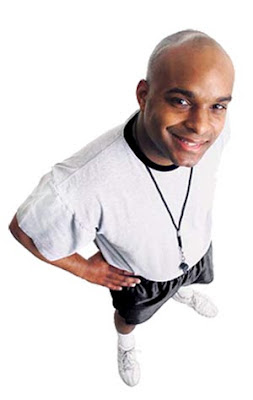"It is remarkable how many of the positions of wealth, influence, celebrity and power in our society are held by individuals who were privately educated."
I was surprised because Mr Gove has never struck me as someone especially bothered by our evident social biases. A great deal of Mr Gove's speech focused on the inequalities inherent within our sports systems. Yet, in dismantling the Physical Education and School Sport programme in English schools, and especially the School Sport Partnerships, he was directly responsible for sabotaging one of the very few national policies to successfully break down barriers to participation of state-school pupils.
And the proposed solution of 'more competitive sport in schools' would be simply laughable if it was not for its promise of reversing many of the advances we have seen during the last decade, with the negative health consequences that will bring.
Simple solutions are great for dealing with simply problems. But even Mr Gove is starting to recognise that the problems of participation and talent development are not simple.
At Brighton he said:
Take sport – where by definition the biggest names are in their teens, twenties and thirties.
As Ed Smith, the Tonbridge-educated former England player, and current Times journalist, points out in his wonderful new book “Luck”:Twenty-five years ago, of the 13 players who represented England on a tour of Pakistan, only one had been to a private school. In contrast, over two thirds of the current team are privately educated. You’re 20 times more likely to go on and play for England if you go to private school rather than state school.
The composition of the England rugby union team and the British Olympic team reveal the same trend.
Of those members of England’s first 15 born in England, more than half were privately educated.
And again, half the UK’s gold medallists at the last Olympics were privately educated, compared with seven per cent of the population.
All of this is true. And it has been known from at least the 1980s.
Here is a summary of some of the social and economic factors linked to high performance in sport:
Variable | Source |
Parents achieved high standards in domain | Rotella and Bunker, 1987; Radford, 1990; Feldman and Goldsmith, 1986 |
Relatively high socio-economic status | Rowley, 1992; English Sports Council, 1997; Duncan, 1997 |
Ability and willingness to financially support participation and specialist support | Rowley, 1992; Kirk, et al, 1997a; Kay, 2000 |
Ability and willingness to invest high amounts of time to support the child’s engagement in the activity | Yang et al., 1996; Kirk et al., 1997b; Kay, 2000; Holt and Morley, 2004 |
Parents as car owners | Rowley, 1992 |
Relatively small family size | English Sports Council, 1997 |
Two-parent family | Rowley, 1992; Kay, 2000 |
Attendance at Independent School | Rowley, 1992 |
Table: social and economic influences on youth talent development in sport (based on Bailey and Morley, 2006)
These, and other, factors show why any ambition of a fair and equitable sports development system in countries like the UK will always be difficult.
Think of these data this way: imagine a child who is talented in a sport; the absence of each factor listed in the table above becomes a barrier to that child's development NO MATTER HOW TALENTED, OR COMMITTED HE OR SHE IS.
Mr Gove's speech acknowledges the unfairness of the UK sports system. But there is another side to the matter: it is also stupid. It is stupid because participation and advancement in sport are always undermined by factors that have absolutely nothing to do with interest or ability.
So it is a refreshing to read Mr Gove's speech. Perhaps it will bring about renewed awareness of the problems inherent with the UK sport system (and all other Western systems). But this awareness needs to be coupled with an acknowledgement that simple solutions will not do.
We need a root and branch re-evaluation of the whole system, and a suite of solutions based on evidence. And we are a long way from adopting that sort of approach in sport.
You have read this article administration /
London 2012 /
London Games /
London Olympics /
Michael Gove /
sport /
sports /
sports coaching
with the title sports coaching. You can bookmark this page URL http://say-sport.blogspot.com/2012/05/sport-has-still-got-long-way-to-go-mr.html. Thanks!





















